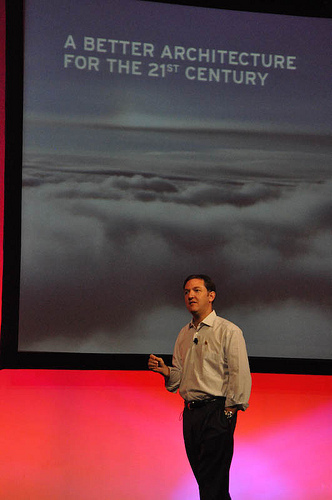

Credit: Red Hat @ Flickr
RED HAT'S Richard Fontana writes that "According to scotusblog.com, SCOTUS issues opinions in three cases, but no Bilski" (yet).
Section 4.1.2 of the policy states, “ The patent claims necessary to implement the Identified Standard shall be available on a Royalty-Free basis for the life time of the Standard. If such Standards are not found feasible then in the wider public interest, Fair, Reasonable and Non Discriminatory terms and conditions (FRAND) or Reasonable and Non Discriminatory terms and conditions (RAND) with no payment could be considered.”
We request that the following statement, “If such Standards are not found feasible then in the wider public interest, Fair, Reasonable and Non Discriminatory terms and conditions (FRAND) or Reasonable and Non Discriminatory terms and conditions (RAND) with no payment could be considered” be moved to the section 4.3 which deals with “Non-availability of Open Standard which meets all Mandatory Characteristics dealing with exceptions.” We strongly feel that this sentence is completely out of place, especially considering that it is currently housed in section 4.1 titled, “Mandatory Characteristics.”
We feel that section 4.1.2 is the heart of the Draft Policy and placing an exception statement in the very heart of the policy will send out wrong and conflicting signals. Also, in terms of sequence, the RAND/FRAND clause pre-empts the selection criteria listed in Section 4.4. It should also be noted that standards that are RAND/FRAND should be termed as “Interim Standards” and should NOT be termed as “Open Standards.”
For example, the H.264-encoded Internet Video format is currently free to end users until at least December 31, 2015. Once this period ends, MPEG LA, the licensing agency for H.264 may start charging royalties. Therefore, H.264 is a partially-royalty free standard, but cannot be considered an open standard because users do not have the freedom to encode and decode data and have to adhere to complex licensing conditions. Under the current wording of Section 4.1.2, H.264 may qualify as a suitable open standard for e-governance but this is clearly unacceptable in the long-term. For example, if Doordarshan uses H.264 to transmit a National Address by the Prime Minister of India over the web on 1st January, 2016, it may attract royalty that “...shall be no more than the economic equivalent of royalties payable during the same time for free television." Therefore, we suggest, once again, that this sentence be moved to Section 4.4 and be modified to read, "If such Standards are not found feasible then in the wider public interest, Fair, Reasonable and Non Discriminatory terms and conditions (FRAND) or Reasonable and Non Discriminatory terms and conditions (RAND) with no payment, AND NO RESTRICTIONS ON REUSE, could be considered.”
On the eve of re: Bilski, the anxiously awaited Supreme Court decision on business method patents (with potential implications for software patents), I decided to collaborate with the End Software Patents coalition and send out 200 copies of the short movie they recently produced called Patent Absurdity about why software should not be able to be patented to a focused list of key people. The letter follows.
Venture capitalist Brad Feld has mailed a copy of Patent Absurdity to 200 policy setters in the USA (see Who should see Patent Absurdity?). The 200 are influential people in companies, standards groups, academia, and the relevent political committees.
ciaran_o_riordan writes "No matter which side the US Supreme Court's Bilski decision pleases, it will be just the beginning of the software patent debate in the USA — the other side will start a legislative battle. The lobbying has already begun, with venture capitalist Brad Feld arguing against software patents, mailing a copy of Patent Absurdity to 200 patent policy setters. As Feld puts it, 'Specifically, I'm hoping the film will bring you to an understanding of why patents on software are a massive tax on and retardant of innovation in the US.' The patent lawyers and big patent holders often tell us that patents are needed to secure investment, so it's interesting to see now that venture capitalists are refuting that. And Brad Feld isn't the only vocal one; there's a growing list."